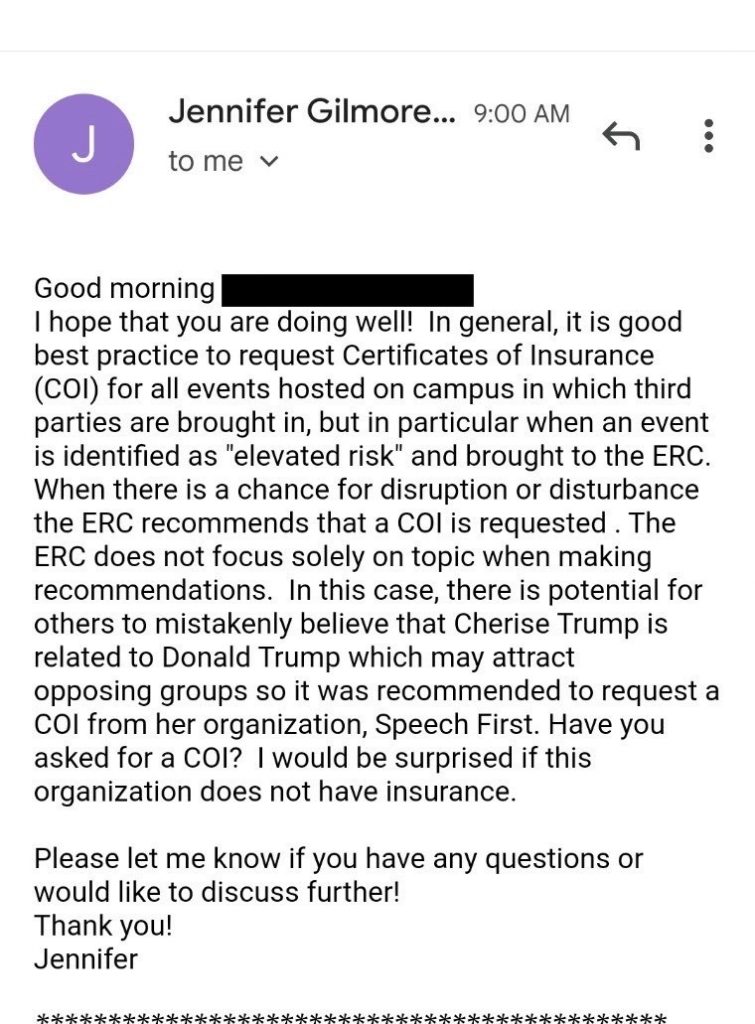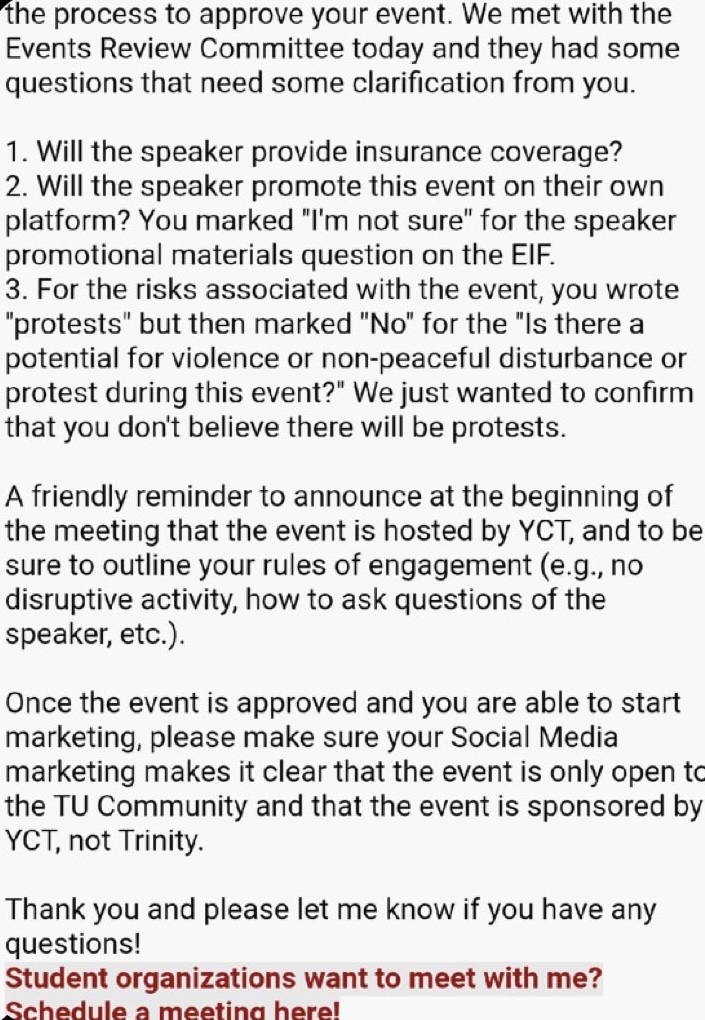Cherise Trump is used to questions about her last name. As the executive director of Speech First, a nonprofit that defends the First Amendment rights of college students, Trump has been answering them ever since she took her husband’s surname in 2017.
"People ask everyday if I’m related to the former president," she told the Washington Free Beacon. She isn’t, as a quick Google search will reveal. In almost two years of speaking on college campuses, Trump said, she has never been protested or shouted down due to a case of mistaken identity.
But now, one liberal arts school is pressing her to purchase event insurance before setting foot on campus, citing her name as a security threat.
When Young Conservatives of Texas asked Trump to speak at Trinity University this month, the school’s director of risk management, Jennifer Adamo, warned about the possibility of "disruption." The talk posed an "elevated risk," she told student organizers in a February 20 email, because "there is potential for others to mistakenly believe that Cherise Trump is related to Donald Trump."
The school was therefore asking Speech First to purchase special liability insurance ahead of the event, which is scheduled for March 3.

Trump—who did end up buying a $76 plan—called the request "ridiculous."
"Trinity should be fostering a campus environment that encourages its students to hear differing ideas without turning to mob violence," she said. "Not only does this show that the university has little faith in its students' ability to use the internet, it also coddles and shields students from opposing viewpoints."
Adamo did not respond to a request for comment.
Trinity’s concerns come amid an uptick in rowdy protests on college campuses, where speakers have been shouted down—and in some cases physically threatened—by throngs of militant activists. In March 2022, hundreds of students disrupted a free speech panel at Yale Law School, forcing police to escort the panelists to safety.
The University of California Berkeley canceled a 2017 event with Milo Yiannopoulos after violent protests caused $100,000 in property damage. Also in 2017, students at Evergreen State began patrolling campus with baseball bats when Bret Weinstein, then a biology professor at the college, criticized their demands for a white "day of absence."
Trinity is now claiming it requested Trump purchase insurance only because Young Conservatives of Texas indicated there could be a brouhaha. "When submitting their event request form, the sponsoring student organization typed ‘protest’ when asked if any risk was associated with this program," a university spokeswoman, Carla Sierra, said.
But on the same form, Young Conservatives of Texas said there was no chance of violence at the talk, according to emails reviewed by the Free Beacon. "For the risks associated with the event," Alamo’s office wrote to the group, "you wrote ‘protests’ but then marked ‘no’ for the ‘is there a potential for violence or non-peaceful disturbance or protest during this event?’"

The group’s president, Ellis Jacoby, also told the Free Beacon that Trinity’s event form required him to name at least one risk associated with Trump’s talk. That was the only reason he put "protests," he said.
Trinity’s actuarial request appears to be highly unusual. Jacoby told Adamo in an email that none of his past guests had been required to purchase insurance, even when they were speaking on charged topics like "Critical Race Theory" and "immigration."
Those subjects are "more controversial than free speech," Ellis wrote. "I haven't had any problems with any protests or disturbances at any events I've hosted on campus, so I don't think there's a chance of anything happening at this event."
